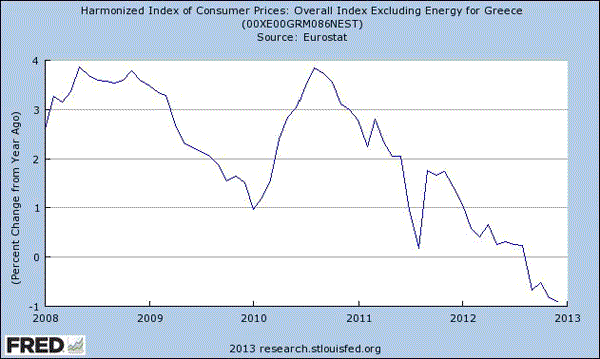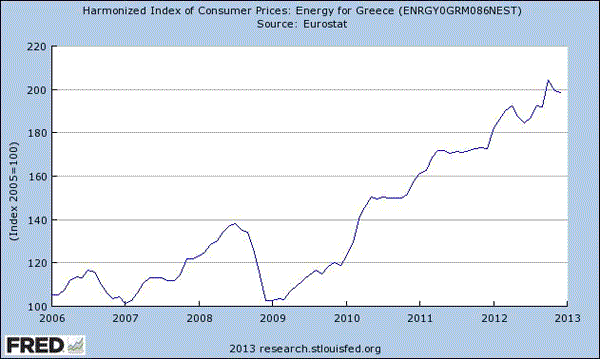Tyler Cowen confuses me:
The rates of price inflation in Greece have been running in the range of 0.8% to 2%…It’s funny how many people pretend to understand what is going on here. If Greece were seeing a stronger bout of price deflation, the situation would be much clearer.
This seems to me to be a case of trying to find a problem where none exists. Greece consumer prices excluding energy:

What part of the deflation is not clear? Seems like any inflation is being driven by energy costs:

So what going on in the energy sector? Stories like this:
Greeks cutting back on household expenses are turning from oil to wood to heat their homes, but in turn are filling the night air with potentially hazardous pollutants, health care officials have warned.
The coalition government, under pressure from the EU-IMF-ECB Troika to impose more austerity measures, has pushed the price of heating oil to about 1.50 euros per litre by raising the tax on heating oil by 40 percent. Besides being a revenue-raiser, the government said the tax was meant to deter people from putting the oil in their cars instead of more expensive diesel.
And:
Greece raised electricity prices for households by up to 15 percent this year to help state-controlled power company PPC cover costs for transmission rights, the government said on Sunday…
…They come after a 9.2 percent average increase in prices last year.
PPC is the dominant player in the Greek energy market, and the country’s EU and IMF lenders are pressing the government to make room for private companies. The company’s tariffs are regulated by the state.
The Troika is remaking the energy sector, with the consequence of rising prices in a way that looks like a sectoral supply shock that is very obviously distinct from the demand side disturbance. What exactly is the big mystery here?



Leave a Reply